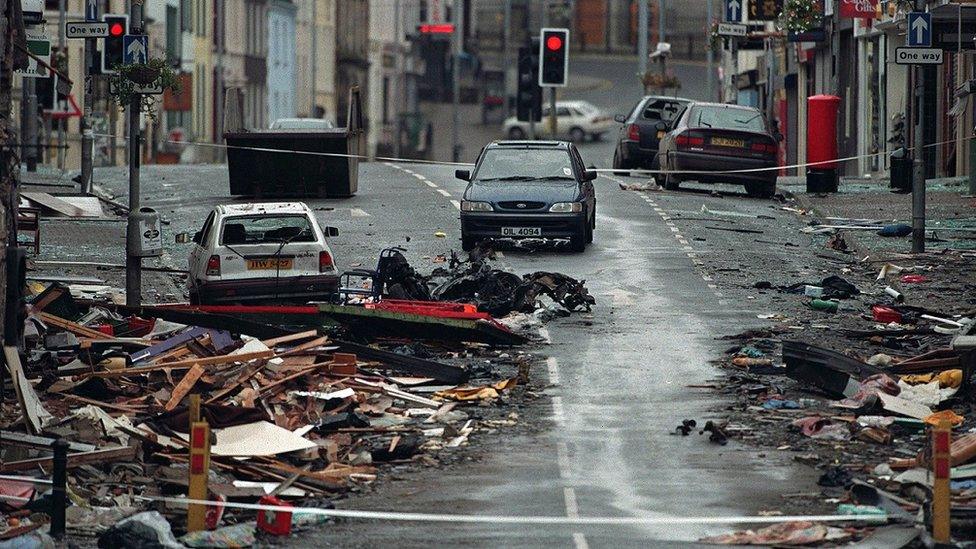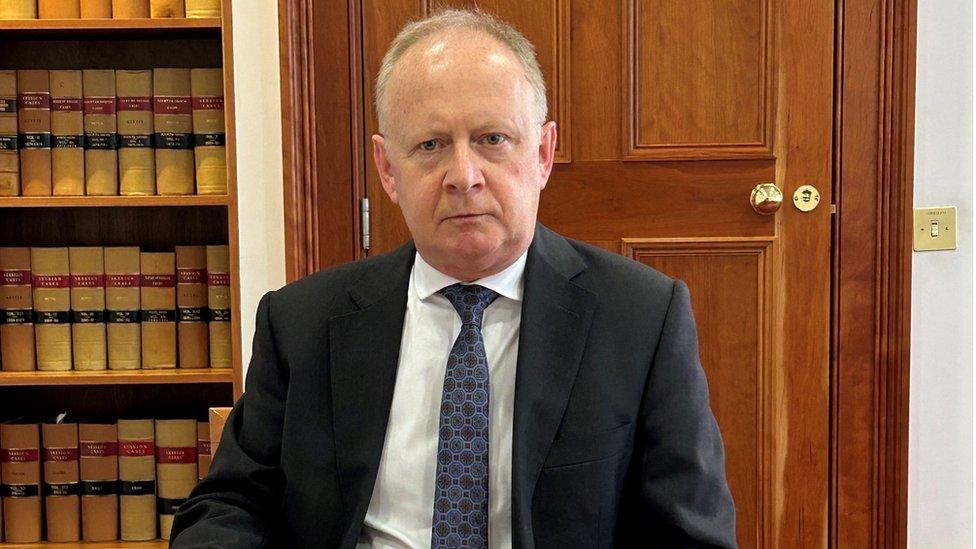Top judge appointed as Omagh bomb inquiry chairman
- Published

Omagh was bombed by the Real IRA in 1998
A senior Scottish judge has been appointed as the chairman of an inquiry into the 1998 Omagh bombing.
Northern Ireland Secretary Chris Heaton-Harris said Lord Turnbull would head up the independent statutory inquiry.
The Real IRA attack on the County Tyrone town in 1998 killed 29 people, including a woman pregnant with twins.
The inquiry was confirmed by the UK government in February after years of campaigning by victims and relatives.
The government has described the inquiry as an "independent statutory inquiry" rather than the more well-known term "public inquiry".
It will have the full powers of the Inquiries Act 2005, the act under which public inquiries are normally held.
Mr Heaton-Harris said Lord Turnbull, who has served as a judge in Scotland's highest civil and criminal courts, would bring "the highest levels of knowledge and professionalism" to the role.
"I have no doubt that Lord Turnbull will bring to the inquiry the required rigour, independence, and impartiality and I am grateful to him for accepting this important job," he added.

Lord Turnbull has served on Scotland's highest courts
Lord Turnbull said he was honoured by the appointment.
"I am very conscious of the devastation brought to the lives of so many by the atrocity which took place in Omagh in August 1998," he said.
"I understand the determination of those who lost family and loved ones, and of those who were themselves injured, or whose family members were injured, to learn whether the attack could have been prevented."
Lord Turnbull added that he would be seeking views from people affected by the inquiry as soon as possible.
The inquiry will examine four issues:
The handling and sharing of intelligence
The use of mobile phone analysis
Whether there was advance knowledge or reasonable means of knowledge of the bomb
Whether disruption operations could or should have been mounted, which may have helped prevent the Real IRA attack
During a hearing at the High Court in Belfast in 2021 examining whether there should be an investigation such as a public inquiry, a judge said on the basis of evidence he heard it was plausible the bombing could have been stopped.
What happened at Omagh?
The bomb exploded on 15 August 1998 and came four months after the signing of the Good Friday Agreement, the peace deal that eventually brought an end to decades of violence known as the Troubles.
The 29 victims of the Omagh bombing
It was carried out by dissident republican group the Real IRA, which split from the much larger Provisional IRA after objecting to its ceasefire of 1997.
No-one has ever been convicted of the atrocity.
Real IRA leader Michael McKevitt, who died in 2021, was found responsible for the Omagh bombing in a civil case in 2009, with three other men - Liam Campbell, Colm Murphy and Seamus Daly - also being found liable for the attack.
The four men were named by Mr Justice Morgan in a ruling made as part of a landmark case taken by some of the families of the victims.
The 12 relatives were awarded more than £1.6m in damages for the attack but to date nothing has been paid.
- Published2 February 2023

- Published23 July 2021
